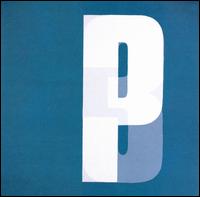

As the quintessential group to come out of the trip-hop movement of the 1990s, Portishead’s suave, cinematic style could fit snugly on many a spy movie soundtrack – that is, if their songs weren’t the stomping grounds of the morbidly depressed. It’s been 11 years between studio albums for this Bristol, UK, trio, and judging by the moods and ideas that dominate Third, they still don’t find the bright side of life all that interesting. “I can’t deny what I’ve become/I’m just emotionally undone,” laments lead singer Beth Gibbons on “Magic Doors,” one of many tracks on this disc that show Portishead hasn’t lost a step. Gibbons’ voice is a revelation, its brink-of-tears quaver making it more than just beautiful – as she delivers the chorus of “Magic Doors,” one gets the sensation of being haunted by a ghost that means no harm.
And while Third pretty much picks up where the band’s first two albums left off, exploring themes of sadness, self-doubt and broken relationships over post-punk keyboards and fluttering dance beats, it does contain a few remarkable experiments, most notably “Deep Water,” a one-and-a-half minute song tucked into the middle of the record. Over some lazy ukulele strumming, Gibbons sings, “Gotta remember/Don’t fight it/Even if I don’t like it.” As her bandmates echo each line, their backing vocals are manipulated and muddied in the mix – they sound like they were recorded underwater. The result is a Hawaiian pop song on Ritalin, a cross between Steve Martin and Bernadette Peters singing “Tonight You Belong To Me” in The Jerk and Ian Curtis proclaiming that "love will tear us apart." It’s a creepy, charming song, something that few bands other than Portishead could pull off.
“Deep Water” may be the standout track on Third, but the songs that mine the “classic” Portishead sound also contain some riveting new wrinkles. “Small” features an epic, dissonant organ build and atmospheric guitar squeals that wouldn’t sound out of place on Pink Floyd’s The Piper at the Gates of Dawn. “Machine Gun” is a great example of how the band uses rhythm to create a hook; it’s driven by a flurry of drum machine snare hits that do justice to the song title. And throughout it all, Gibbons gives an inspired performance that proves she’s still one of the best “oh, woe is me” vocalists around. Third may be relentlessly sad, but it’s a triumphant return for one of rock’s most enchanting bands. Here’s hoping record number four comes before 2019.
Appeared in the May 22, 2008, issue of Artvoice.